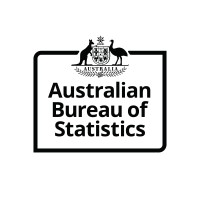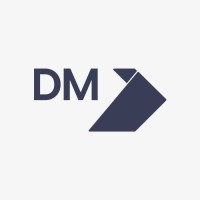
Australian Bureau of Statistics Company Cyber Security Posture
abs.gov.auThe ABS has an international reputation as one of the best statistical offices in the world and from our earliest decades we have been respected for delivering objective statistics that hold a mirror to Australian community and governments. Originally known as the Commonwealth Bureau of Census and Statistics, the ABS came into being over 100 years ago, on the eighth of December 1905, in recognition that statistics were going to be important to building our nation. The ABS produces and disseminates statistics in a number of key areas, including: Social Statistics; Economic Statistics; Population Statistics; Labour Statistics; Industry Statistics; and Environment Statistics. The ABS statistical programs are supported by service areas which deliver assistance and advice on statistical methods, data and metadata management, information technology, client management, dissemination, human resources and other corporate services. The ABS also has an important coordination function with respect to the statistical activities of other official bodies, both in Australia and overseas.
ABS Company Details
absstats
2410 employees
143726
922
Government Administration
abs.gov.au
Scan still pending
AUS_1551962
In-progress
Between 900 and 1000
This score is AI-generated and less favored by cyber insurers, who prefer the TPRM score.
 ABS Global Score
ABS Global Score.png)

Australian Bureau of Statistics Company Scoring based on AI Models
| Model Name | Date | Description | Current Score Difference | Score |
|---|---|---|---|---|
| AVERAGE-Industry | 03-12-2025 | This score represents the average cybersecurity rating of companies already scanned within the same industry. It provides a benchmark to compare an individual company's security posture against its industry peers. | N/A | Between 900 and 1000 |
Australian Bureau of Statistics Company Cyber Security News & History
| Entity | Type | Severity | Impact | Seen | Url ID | Details | View |
|---|---|---|---|---|---|---|---|
| Australian Bureau of Statistics | Cyber Attack | 60 | 2 | 08/2016 | AUS11483622 | Link | |
Rankiteo Explanation : Attack limited on finance or reputationDescription: The Australian Bureau of Statistics (ABS) Census website was hit by a four denial of service (DDoS) after it was attacked by foreign hackers. The first three caused minor disruptions and did not stop more than 2.33 million census forms from being "successfully submitted and safely stored. Australian Privacy Commissioner Timothy Pilgrim launched an investigation into the ABS "cyber attacks" and took the preventive steps of closing down the system to ensure the integrity of the data. | |||||||
Australian Bureau of Statistics Company Subsidiaries

The ABS has an international reputation as one of the best statistical offices in the world and from our earliest decades we have been respected for delivering objective statistics that hold a mirror to Australian community and governments. Originally known as the Commonwealth Bureau of Census and Statistics, the ABS came into being over 100 years ago, on the eighth of December 1905, in recognition that statistics were going to be important to building our nation. The ABS produces and disseminates statistics in a number of key areas, including: Social Statistics; Economic Statistics; Population Statistics; Labour Statistics; Industry Statistics; and Environment Statistics. The ABS statistical programs are supported by service areas which deliver assistance and advice on statistical methods, data and metadata management, information technology, client management, dissemination, human resources and other corporate services. The ABS also has an important coordination function with respect to the statistical activities of other official bodies, both in Australia and overseas.
Access Data Using Our API

Get company history
.png)
ABS Cyber Security News
Annual Cyber Threat Report 2023-2024
This year's report outlines the cyber threat posed to Australian governments, critical infrastructure, businesses and households. It shows how ...
Data Beyond Borders – Australian Data Stored in Non-Australian Cloud Environments
Data stored outside national borders may legally remain “owned” by an Australian entity but be practically controlled, or accessed, by foreign entities under ...
3.5 million Australians experienced fraud last year. This could be avoided through 6 simple steps
About 14% of Australians experienced personal fraud last year. Of these, 2.1 million experienced credit card fraud, 675,300 were caught in a ...
Australia's cyber sector grows amid increasing attack risks
The report found that 69% of businesses encountered a ransomware attack during 2024, and Australia now ranks fourth globally for cyber attacks ...
Australian Cyber Crime Statistics In 2023 Shed Light On The Current Cyber Threat Landscape
Australian Cyber Crime Statistics 2023 - 76000 cybercrime reports, signify a significant 13% rise compared to 2022. Ransomware surges 500%
ANU finds new CISO
The Australian National University has a new chief information security officer, with Julian Doak joining from the Australian Bureau of ...
Census website struck by a billion attempted cyber-attacks, Australian Bureau of Statistics reveals
The Australian Bureau of Statistics has revealed it has fended off close to a billion cyber-attacks against the census.
Notifiable Data Breaches Report: January to June 2024
From January to June this year, we received 527 data breach notifications. This is the highest number of notifications received since July to December 2020.
Figure 1. Global cyber security spendings (Source: Gartner, Australian...
The global cyber security market was worth US$145 billion in 2018. It is set to increase to US$270 billion by 2026(FIAL, 2018.

ABS Similar Companies

State of Missouri
Build the Missouri of tomorrow. Ensure a strong foundation today. Join a group of innovative team members focused on driving the State of Missouri forward. As public servants, our team members have the opportunity to produce work that is both lasting and important. This work serves to protect famil

Social Security Administration
Social Security provides financial protection for our nation’s people, supporting more than 64 million individuals and families. With retirement, disability, and survivors benefits, Social Security is one of the most successful anti-poverty programs in our nation's history. We are there throughout

Dubai Municipality
Dubai Municipality Dubai Municipality was founded in 1954 commencing its activities with a cadre of seven employees undertaking simple tasks to keep the city clean. The first decree establishing the Municipality was issued on February 28, 1957, whereby 23 municipal council members were appointed fr

New York Army National Guard
The New York Army National Guard is comprised of over 10,000 dedicated Citizen Soldiers. We are everyday people who are members of our community, who also put our lives on hold to defend, aid and protect our State and Great Nation. Our Soldiers are offered 100% Tuition Assistance at SUNY/CUNY Colleg

Centers for Disease Control and Prevention
CDC works 24/7 keeping America safe from health, safety and security threats, both foreign and domestic. Whether diseases start at home or abroad, are chronic or acute, curable or preventable, human error or deliberate attack, CDC fights it and supports communities and citizens to prevent it. CDC is

City of Cape Town
Cape Town, or the Mother City, is South Africa’s oldest city, its second-most populous and the legislative capital. It is made up of a diverse population, a rich history, world-famous tourist attractions and an exciting calendar of international and local events. More than 231 councillors and 26 22

Frequently Asked Questions (FAQ) on Cybersecurity Incidents
ABS CyberSecurity History Information
Total Incidents: According to Rankiteo, ABS has faced 1 incidents in the past.
Incident Types: The types of cybersecurity incidents that have occurred include ['Cyber Attack'].
Total Financial Loss: The total financial loss from these incidents is estimated to be {total_financial_loss}.
Cybersecurity Posture: The company's overall cybersecurity posture is described as The ABS has an international reputation as one of the best statistical offices in the world and from our earliest decades we have been respected for delivering objective statistics that hold a mirror to Australian community and governments. Originally known as the Commonwealth Bureau of Census and Statistics, the ABS came into being over 100 years ago, on the eighth of December 1905, in recognition that statistics were going to be important to building our nation. The ABS produces and disseminates statistics in a number of key areas, including: Social Statistics; Economic Statistics; Population Statistics; Labour Statistics; Industry Statistics; and Environment Statistics. The ABS statistical programs are supported by service areas which deliver assistance and advice on statistical methods, data and metadata management, information technology, client management, dissemination, human resources and other corporate services. The ABS also has an important coordination function with respect to the statistical activities of other official bodies, both in Australia and overseas..
Detection and Response: The company detects and responds to cybersecurity incidents through {description_of_detection_and_response_process}.
Incident Details
Incident 1: Ransomware Attack
Title: {Incident_Title}
Description: {Brief_description_of_the_incident}
Date Detected: {Detection_Date}
Date Publicly Disclosed: {Disclosure_Date}
Date Resolved: {Resolution_Date}
Type: {Type_of_Attack}
Attack Vector: {Attack_Vector}
Vulnerability Exploited: {Vulnerability}
Threat Actor: {Threat_Actor}
Motivation: {Motivation}
Incident 2: Data Breach
Title: {Incident_Title}
Description: {Brief_description_of_the_incident}
Date Detected: {Detection_Date}
Date Publicly Disclosed: {Disclosure_Date}
Date Resolved: {Resolution_Date}
Type: {Type_of_Attack}
Attack Vector: {Attack_Vector}
Vulnerability Exploited: {Vulnerability}
Threat Actor: {Threat_Actor}
Motivation: {Motivation}
Common Attack Types: As of now, the company has not encountered any reported incidents involving common cyberattacks.
Identification of Attack Vectors: The company identifies the attack vectors used in incidents through {description_of_identification_process}.
Impact of the Incidents
Incident 1: Ransomware Attack
Financial Loss: {Financial_Loss}
Data Compromised: {Data_Compromised}
Systems Affected: {Systems_Affected}
Downtime: {Downtime}
Operational Impact: {Operational_Impact}
Conversion Rate Impact: {Conversion_Rate_Impact}
Revenue Loss: {Revenue_Loss}
Customer Complaints: {Customer_Complaints}
Brand Reputation Impact: {Brand_Reputation_Impact}
Legal Liabilities: {Legal_Liabilities}
Identity Theft Risk: {Identity_Theft_Risk}
Payment Information Risk: {Payment_Information_Risk}
Incident 2: Data Breach
Financial Loss: {Financial_Loss}
Data Compromised: {Data_Compromised}
Systems Affected: {Systems_Affected}
Downtime: {Downtime}
Operational Impact: {Operational_Impact}
Conversion Rate Impact: {Conversion_Rate_Impact}
Revenue Loss: {Revenue_Loss}
Customer Complaints: {Customer_Complaints}
Brand Reputation Impact: {Brand_Reputation_Impact}
Legal Liabilities: {Legal_Liabilities}
Identity Theft Risk: {Identity_Theft_Risk}
Payment Information Risk: {Payment_Information_Risk}
Average Financial Loss: The average financial loss per incident is {average_financial_loss}.
Commonly Compromised Data Types: The types of data most commonly compromised in incidents are {list_of_commonly_compromised_data_types}.
Incident 1: Ransomware Attack
Entity Name: {Entity_Name}
Entity Type: {Entity_Type}
Industry: {Industry}
Location: {Location}
Size: {Size}
Customers Affected: {Customers_Affected}
Incident 2: Data Breach
Entity Name: {Entity_Name}
Entity Type: {Entity_Type}
Industry: {Industry}
Location: {Location}
Size: {Size}
Customers Affected: {Customers_Affected}
Response to the Incidents
Incident 1: Ransomware Attack
Incident Response Plan Activated: {Yes/No}
Third Party Assistance: {Yes/No}
Law Enforcement Notified: {Yes/No}
Containment Measures: {Containment_Measures}
Remediation Measures: {Remediation_Measures}
Recovery Measures: {Recovery_Measures}
Communication Strategy: {Communication_Strategy}
Adaptive Behavioral WAF: {Adaptive_Behavioral_WAF}
On-Demand Scrubbing Services: {On_Demand_Scrubbing_Services}
Network Segmentation: {Network_Segmentation}
Enhanced Monitoring: {Enhanced_Monitoring}
Incident 2: Data Breach
Incident Response Plan Activated: {Yes/No}
Third Party Assistance: {Yes/No}
Law Enforcement Notified: {Yes/No}
Containment Measures: {Containment_Measures}
Remediation Measures: {Remediation_Measures}
Recovery Measures: {Recovery_Measures}
Communication Strategy: {Communication_Strategy}
Adaptive Behavioral WAF: {Adaptive_Behavioral_WAF}
On-Demand Scrubbing Services: {On_Demand_Scrubbing_Services}
Network Segmentation: {Network_Segmentation}
Enhanced Monitoring: {Enhanced_Monitoring}
Incident Response Plan: The company's incident response plan is described as {description_of_incident_response_plan}.
Third-Party Assistance: The company involves third-party assistance in incident response through {description_of_third_party_involvement}.
Data Breach Information
Incident 2: Data Breach
Type of Data Compromised: {Type_of_Data}
Number of Records Exposed: {Number_of_Records}
Sensitivity of Data: {Sensitivity_of_Data}
Data Exfiltration: {Yes/No}
Data Encryption: {Yes/No}
File Types Exposed: {File_Types}
Personally Identifiable Information: {Yes/No}
Prevention of Data Exfiltration: The company takes the following measures to prevent data exfiltration: {description_of_prevention_measures}.
Handling of PII Incidents: The company handles incidents involving personally identifiable information (PII) through {description_of_handling_process}.
Ransomware Information
Incident 1: Ransomware Attack
Ransom Demanded: {Ransom_Amount}
Ransom Paid: {Ransom_Paid}
Ransomware Strain: {Ransomware_Strain}
Data Encryption: {Yes/No}
Data Exfiltration: {Yes/No}
Ransom Payment Policy: The company's policy on paying ransoms in ransomware incidents is described as {description_of_ransom_payment_policy}.
Data Recovery from Ransomware: The company recovers data encrypted by ransomware through {description_of_data_recovery_process}.
Regulatory Compliance
Incident 1: Ransomware Attack
Regulations Violated: {Regulations_Violated}
Fines Imposed: {Fines_Imposed}
Legal Actions: {Legal_Actions}
Regulatory Notifications: {Regulatory_Notifications}
Incident 2: Data Breach
Regulations Violated: {Regulations_Violated}
Fines Imposed: {Fines_Imposed}
Legal Actions: {Legal_Actions}
Regulatory Notifications: {Regulatory_Notifications}
Regulatory Frameworks: The company complies with the following regulatory frameworks regarding cybersecurity: {list_of_regulatory_frameworks}.
Ensuring Regulatory Compliance: The company ensures compliance with regulatory requirements through {description_of_compliance_measures}.
Lessons Learned and Recommendations
Incident 1: Ransomware Attack
Lessons Learned: {Lessons_Learned}
Incident 2: Data Breach
Lessons Learned: {Lessons_Learned}
Incident 1: Ransomware Attack
Recommendations: {Recommendations}
Incident 2: Data Breach
Recommendations: {Recommendations}
Key Lessons Learned: The key lessons learned from past incidents are {list_of_key_lessons_learned}.
Implemented Recommendations: The company has implemented the following recommendations to improve cybersecurity: {list_of_implemented_recommendations}.
References
Additional Resources: Stakeholders can find additional resources on cybersecurity best practices at {list_of_additional_resources}.
Investigation Status
Incident 1: Ransomware Attack
Investigation Status: {Investigation_Status}
Incident 2: Data Breach
Investigation Status: {Investigation_Status}
Communication of Investigation Status: The company communicates the status of incident investigations to stakeholders through {description_of_communication_process}.
Stakeholder and Customer Advisories
Incident 1: Ransomware Attack
Stakeholder Advisories: {Stakeholder_Advisories}
Customer Advisories: {Customer_Advisories}
Incident 2: Data Breach
Stakeholder Advisories: {Stakeholder_Advisories}
Customer Advisories: {Customer_Advisories}
Advisories Provided: The company provides the following advisories to stakeholders and customers following an incident: {description_of_advisories_provided}.
Initial Access Broker
Incident 1: Ransomware Attack
Entry Point: {Entry_Point}
Reconnaissance Period: {Reconnaissance_Period}
Backdoors Established: {Backdoors_Established}
High Value Targets: {High_Value_Targets}
Data Sold on Dark Web: {Yes/No}
Incident 2: Data Breach
Entry Point: {Entry_Point}
Reconnaissance Period: {Reconnaissance_Period}
Backdoors Established: {Backdoors_Established}
High Value Targets: {High_Value_Targets}
Data Sold on Dark Web: {Yes/No}
Monitoring and Mitigation of Initial Access Brokers: The company monitors and mitigates the activities of initial access brokers through {description_of_monitoring_and_mitigation_measures}.
Post-Incident Analysis
Incident 1: Ransomware Attack
Root Causes: {Root_Causes}
Corrective Actions: {Corrective_Actions}
Incident 2: Data Breach
Root Causes: {Root_Causes}
Corrective Actions: {Corrective_Actions}
Post-Incident Analysis Process: The company's process for conducting post-incident analysis is described as {description_of_post_incident_analysis_process}.
Corrective Actions Taken: The company has taken the following corrective actions based on post-incident analysis: {list_of_corrective_actions_taken}.
Additional Questions
General Information
Ransom Payment History: The company has {paid/not_paid} ransoms in the past.
Last Ransom Demanded: The amount of the last ransom demanded was {last_ransom_amount}.
Last Attacking Group: The attacking group in the last incident was {last_attacking_group}.
Incident Details
Most Recent Incident Detected: The most recent incident detected was on {most_recent_incident_detected_date}.
Most Recent Incident Publicly Disclosed: The most recent incident publicly disclosed was on {most_recent_incident_publicly_disclosed_date}.
Most Recent Incident Resolved: The most recent incident resolved was on {most_recent_incident_resolved_date}.
Impact of the Incidents
Highest Financial Loss: The highest financial loss from an incident was {highest_financial_loss}.
Most Significant Data Compromised: The most significant data compromised in an incident was {most_significant_data_compromised}.
Most Significant System Affected: The most significant system affected in an incident was {most_significant_system_affected}.
Response to the Incidents
Third-Party Assistance in Most Recent Incident: The third-party assistance involved in the most recent incident was {third_party_assistance_in_most_recent_incident}.
Containment Measures in Most Recent Incident: The containment measures taken in the most recent incident were {containment_measures_in_most_recent_incident}.
Data Breach Information
Most Sensitive Data Compromised: The most sensitive data compromised in a breach was {most_sensitive_data_compromised}.
Number of Records Exposed: The number of records exposed in the most significant breach was {number_of_records_exposed}.
Ransomware Information
Highest Ransom Demanded: The highest ransom demanded in a ransomware incident was {highest_ransom_demanded}.
Highest Ransom Paid: The highest ransom paid in a ransomware incident was {highest_ransom_paid}.
Regulatory Compliance
Highest Fine Imposed: The highest fine imposed for a regulatory violation was {highest_fine_imposed}.
Most Significant Legal Action: The most significant legal action taken for a regulatory violation was {most_significant_legal_action}.
Lessons Learned and Recommendations
Most Significant Lesson Learned: The most significant lesson learned from past incidents was {most_significant_lesson_learned}.
Most Significant Recommendation Implemented: The most significant recommendation implemented to improve cybersecurity was {most_significant_recommendation_implemented}.
References
Most Recent Source: The most recent source of information about an incident is {most_recent_source}.
Most Recent URL for Additional Resources: The most recent URL for additional resources on cybersecurity best practices is {most_recent_url}.
Investigation Status
Current Status of Most Recent Investigation: The current status of the most recent investigation is {current_status_of_most_recent_investigation}.
Stakeholder and Customer Advisories
Most Recent Stakeholder Advisory: The most recent stakeholder advisory issued was {most_recent_stakeholder_advisory}.
Most Recent Customer Advisory: The most recent customer advisory issued was {most_recent_customer_advisory}.
Initial Access Broker
Most Recent Entry Point: The most recent entry point used by an initial access broker was {most_recent_entry_point}.
Most Recent Reconnaissance Period: The most recent reconnaissance period for an incident was {most_recent_reconnaissance_period}.
Post-Incident Analysis
Most Significant Root Cause: The most significant root cause identified in post-incident analysis was {most_significant_root_cause}.
Most Significant Corrective Action: The most significant corrective action taken based on post-incident analysis was {most_significant_corrective_action}.
What Do We Measure?
















Every week, Rankiteo analyzes billions of signals to give organizations a sharper, faster view of emerging risks. With deeper, more actionable intelligence at their fingertips, security teams can outpace threat actors, respond instantly to Zero-Day attacks, and dramatically shrink their risk exposure window.
These are some of the factors we use to calculate the overall score:
Identify exposed access points, detect misconfigured SSL certificates, and uncover vulnerabilities across the network infrastructure.
Gain visibility into the software components used within an organization to detect vulnerabilities, manage risk, and ensure supply chain security.
Monitor and manage all IT assets and their configurations to ensure accurate, real-time visibility across the company's technology environment.
Leverage real-time insights on active threats, malware campaigns, and emerging vulnerabilities to proactively defend against evolving cyberattacks.




